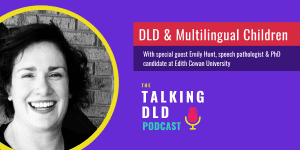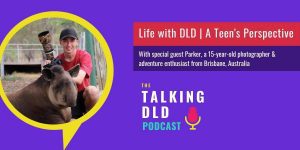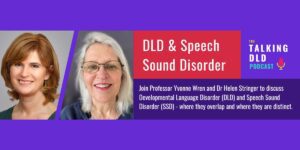Harmony would like to acknowledge the traditional custodians of lutruita (Tasmania) where she lives and works. We pay our respects to their Elders past and present. We extend that respect to Aboriginal and Torres Strait Islander peoples here today.’
Report writing is a complex business! In this episode of The Talking DLD Podcast, we’re delving into what makes a report truly accessible with Harmony Turnbull, researcher and Senior Speech and Language Pathologist at the Department of Education, Tasmania.
More specifically, we discuss what health professionals can do to make reports more likely to be understood and used.
Harmony is a PhD candidate at the University of Technology Sydney (UTS) and she is currently conducting research into allied health reports. Her research includes discussions with people that have lifelong disability about the reports they get from people such as psychologists, physios, OTs and speech pathologists.
Listen to this month’s episode, Report Writing and DLD below.
Learn more about Harmony's Research
It is expected that the findings from Harmony’s research will be used to improve allied health reports written for and about people with communication disability. Improved accessibility means that the reports are easier to read and understand.
You can contact Harmony at: Harmony.M.Turnbull@student.UTS.edu.au
About Harmony Turnbull
Harmony is a speech pathologist with longstanding experience supporting people with lifelong disability, communication disability, and dysphagia. She has many years of industry experience as a senior clinician in the former NSW Department of Ageing Disability and Home Care, and most recently an Associate Lecturer of Speech Pathology at The University of Sydney and The University of Technology Sydney (UTS).
Harmony is now working in the Department of Education Tasmania and pursuing her PhD at UTS. She is exploring the accessibility of written health information for people with communication disability. Harmony has a strong person-centred and rights-based approach to her work, which also recognises the important overlap between ‘disability’ and ‘health’.




